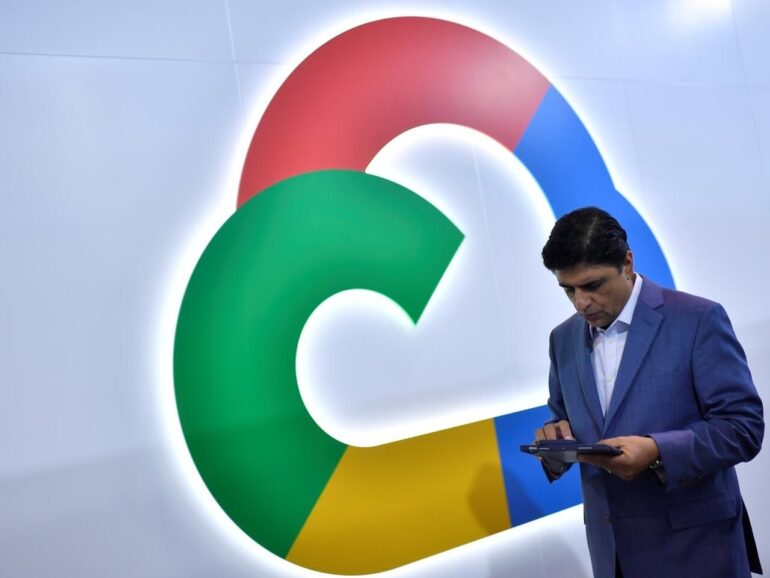Google on Tuesday began letting some developers and businesses access the kind of artificial intelligence that has captured attention since the launch of Microsoft-backed ChatGPT last year.
The tech giant’s cloud computing arm will provide testers with ways to “infuse generative AI” into apps or put them to work on Google’s own platform.
“With this, Google Cloud is poised to enable a whole new generation of builders, innovators, developers and doers to harness the power of AI in novel ways,” said Ritu Jyoti, vice president of an AI group at market research firm IDC.
Developers and businesses will be able to try new application programming interfaces (APIs) and products that make it “easy, safe and scalable” to build AI models using Google’s cloud service, Google’s Thomas Kurian said in a blog post.
Among the functions Google hopes to make more broadly accessible is a generative AI that will allow software to use prompts to sum up information or write in a conversational style.
“In Gmail and Google Docs, (testers) can simply type in a topic you would like to write about and a draft will be instantly generated for you,” Kurian wrote.
“From there, (they) can elaborate upon or abbreviate the message or adjust the tone to be more playful or professional,” he added.
Putting generative AI in the hands of developers, businesses and governments across the globe will allow the technology to realize its full potential, Google Cloud AI vice presidents June Yang and Burak GokTurk wrote in a blog post.
“To date, it has been difficult for organizations to access generative AI, let alone customize (it), and at times the technology is prone to producing inaccurate information that could undermine trust,” Yang and GokTurk said.
“For generative AI to blossom, organizations need a new generation of tools that make it simple to build generative AI applications,” they said.
According to Google, generative AI can help organizations brainstorm, write copy, produce media assets, analyze their data and more.
Since ChatGPT debuted last year, global tech giants have attempted to chase Microsoft—which has pledged to pump billions of dollars into the software’s creator OpenAI—by rolling out announcements on how they will also implement generative artificial intelligence into their own platforms and applications.
Meta CEO Mark Zuckerberg said last month the Facebook and Instagram parent company was creating a product group to come up with ways to “turbocharge” their AI work.
And Snapchat, the photo sharing app popular with teens, has said it will introduce a chatbot powered by the most up-to-date version of OpenAI’s ChatGPT.
Available initially to subscribers, the “MyAI” tab will allow users to interact with the chatbot much like it were a friend.
And Microsoft chief Satya Nadella is expected to showcase how the company is integrating ChatGPT-like artificial intelligence into its widely used business software at a special event on Thursday.
“We’re so excited by the potential of generative AI, and the opportunities it will unlock,” Google’s Kurian said.
“From helping people express themselves creatively to helping developers build brand new types of applications, to transforming how businesses and governments engage their customers and constituents,” he said.
2023 AFP
Citation:
Google lets testers access ChatGPT-style generative AI (2023, March 14)



